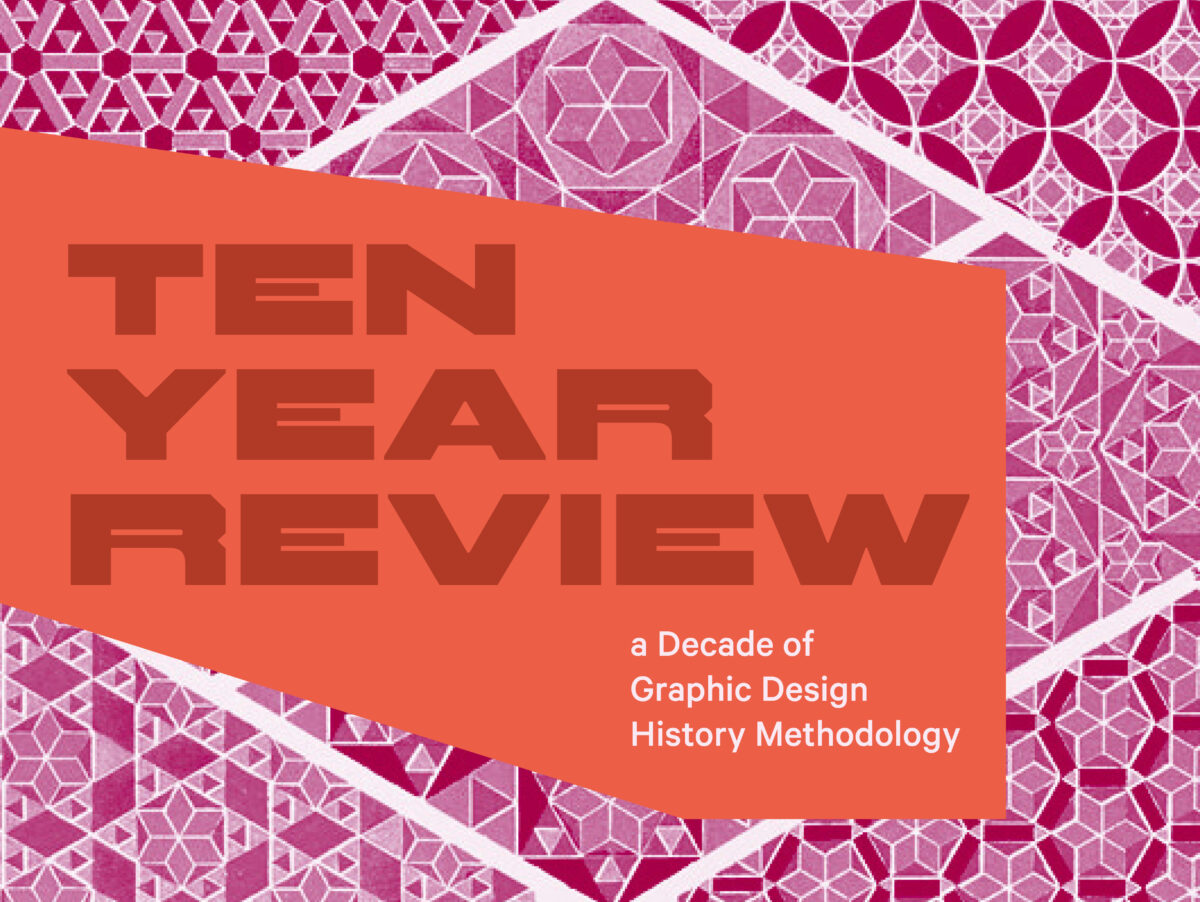Brockett Horne
Lecturer
Boston University
Recently, graphic design practitioners have urgently taken up the project of history-telling. Designers are committed to transforming the limited, exclusive narratives of graphic design history that we have inherited through a variety of methods to likewise define more inclusive spaces within the practice of graphic design. Yet Graphic Design History researchers rarely debate or articulate their methodologies for producing historical research. We speak of what’s missing from history, but methodologies are not discussed.
Unlike fields like Art History, American Studies and other spaces in the Social Sciences, where reflection on methodology is prevalent, designers lack a space to reflect upon HOW historical research is conducted. For other fields, books such as Anne D’Alleva’s Methods & Theories of Art History or Serie McDougal’s Research Methods in Africana Studies are assigned in required coursework about methodology. Even within studio courses in Graphic Design, methodologies such as Design Thinking and User-Centered research are codified and include substantial literature, but they are not prevalent when speaking about how we research history.
This presentation outlines four Graphic Design History Methodologies for historical research— formal analysis, biography, fiction writing, and data visualization. The presentation will especially inform design practitioners without training in history or material culture. Questions that will be addressed include: What cultural, political, gender, and historiographical perspectives shape Graphic Design Historical research? To what extent does Graphic Design History research methodology inadvertently seek information that aligns with prevailing beliefs (see Berry and Walters, The Black Experience in Design) How might present-day attitudes, values, and knowledge influence our interpretation of historical artifacts? And, crucially, how can we navigate these biases to develop more inclusive research practices accessible to all interested in history?
Takeaways:
- Explore a lexicon of Design History Methodologies: formal analysis, biography, fiction writing, and data visualization
- Assess strengths and limitations of a few design research methodologies
- Imagine the future of Design History research
This design research is presented at Design Incubation Colloquium 11.1: Boston University on Friday, October 25, 2024.
